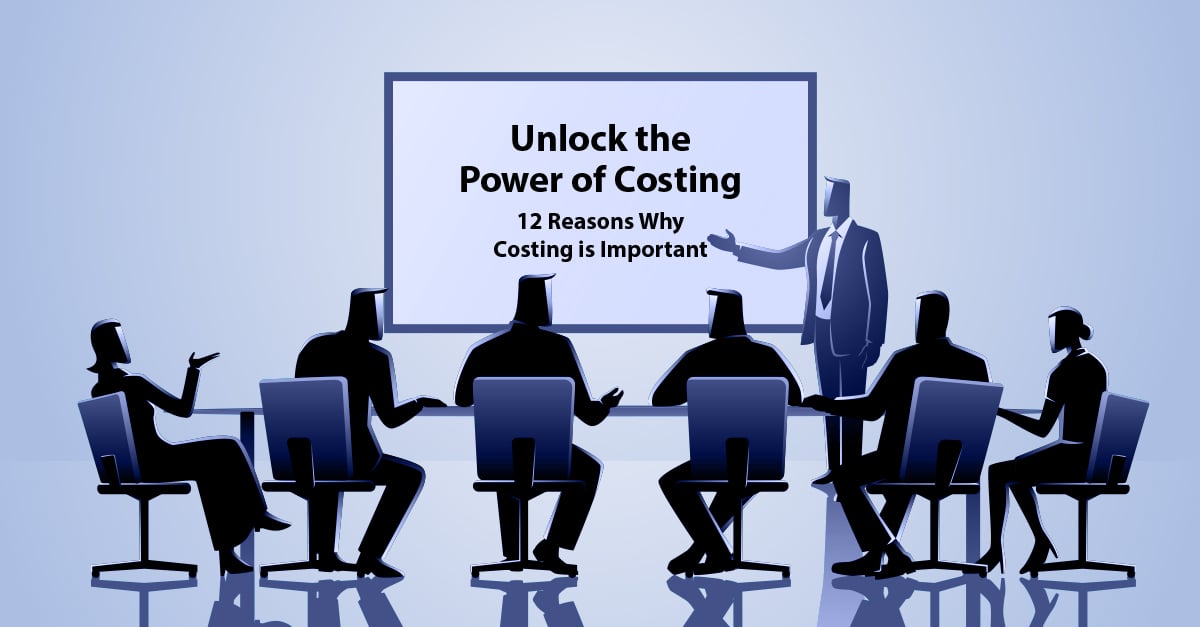The goal of most businesses is to make money. Doing so is simple if you sell your offerings for more than it costs you to acquire, make or provide them. Let’s look at some of the core elements of a business and how understanding cost will impact these decisions. (Again, in this article I will refer to “products” for writing simplicity, and mean products or services or a combination of both. In later articles I will discuss some of the issues uniquely related to the cost of services.)
First, a clarification, as was noted in the first article in the series, the idea of cost is to understand the cost of a single item that you sell. Fully understanding the cost of what you sell can be a challenge. Often you must make assumptions and estimates. Sometimes the best you can do is to understand the costs of a group of like products. However, the goal is a cost at the most granular level.
1. Calculation of Margin
Margin is simply the price you charge less the cost of the product you provide. Margin $/unit and particularly margin % (margin/sales price) are likely the top analytic measure that will help you understand the profitability and health of a business. Almost invariably a business with negative margins is doomed.
2. Pricing
Closely related to margin is pricing. Many businesses develop their prices based on their estimate of their cost for a unit. Pricing is a decision; cost is a calculation. Setting prices is perhaps the most important determinant of business success and failure. While setting your price is always a decision, sometimes the negotiating power is with the customer and they will usurp your decision-making and tell you what they are willing to pay and then your decision is whether to take the order or not.
3. Business Process Development
An owner evaluates his business and its costs and finds that his cost is too high to make a margin at prices the customers will bear. To stay in business the owner must reevaluate their business processes: how they buy, how they add value, investments in capital or other assets, how they pay their employees, etc. Understanding cost is fundamental to these evaluations.
4. Sourcing & Hiring
All businesses need to understand where their input costs (material and labor) need to be to manage what they pay for these inputs.
5. New Product Development
Any new product plan should require a target price, margin and hence a target cost. The new product development process must carefully include ongoing cost calculations to assure the end result is potentially a success.
6. Price/Volume Considerations
Most businesses are faced at one time or another with considering taking on a “big” new order or customer who wants special pricing treatment. Understanding current costs and also cost/volume behaviors are key to making these decisions.
7. Business Process Development
An owner evaluates his business and its costs and finds that his cost is too high to make a margin at prices the customers will bear. To stay in business the owner must reevaluate their business processes: how they buy, how they add value, investments in capital or other assets, how they pay their employees, etc. Understanding cost is fundamental to these evaluations.
8. Sourcing & Hiring
All businesses need to understand where their input costs (material and labor) need to be to manage what they pay for these inputs.
9. Capital Expenditures
Most capital expenditures (new machines, new buildings, new software or technology) will have an impact on cost. These presumed cost improvements can justify the purchase. Conversely, capital spending to increase output will impact costs and understanding the full impact of these costs may lead to deciding yes or no on these expansions.
10. Outsourcing
A business may have opportunities to outsource some or all of its processes. Cost is one of the key determinants of informing these decisions.
11. Customer and Channel Management
Costs will often vary based on specific customers and specific channels of going to market.
Understanding how cost varies by these segments will impact decisions on what type of customers toseek out and which you might consider firing.
12. Mergers and Acquisitions
In the process of evaluating an acquisition, the impact of the acquisition on product costs can make a substantial impact on the synergy (or lack) in the deal negotiation. In negotiating a sale understanding post-sale costs and margins can create opportunities to negotiate a bit more of the synergy into the sales price.
Cost is a core knowledge point for running a business. Few business decisions can be intelligently made without understanding cost and its behavior. The 10 above considerations are of great strategic importance. I’m sure the diligent reader can identify another 10.
In the next article, we will turn our attention to the core decisions for building your cost model.
Are you ready to learn how a Fractional CFO can help you master costing for your business? Schedule Your Complimentary Consultation Today!
Dive into the World of Business Costs - Explore More:
- An Introduction to Product and Service Costing
- 10 Reasons Why Costing Is Important (current)
- Three Core Concepts in Building a Costing Model
- Practical Costing Situations & Concepts: 4 Cases
- Hands on Guide to Cost Modeling
Todd Peter is a Fractional CFO with FocusCFO, based in Cleveland.







